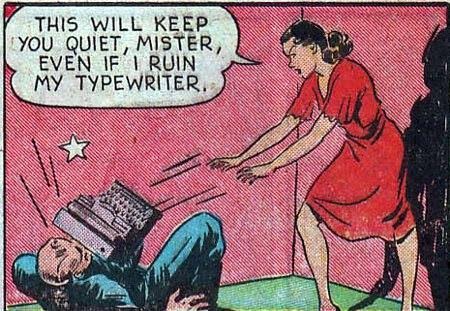by Clara and Caty [Content warning: some discussion of rape. Also, spoiler warning.] Clara: Westworld is a science fiction western thriller created and produced by Jonathan Nolan and Lisa Joy. JJ Abrams is also a producer, so think Jurassic Park meets Firefly with a dash of Lost. As with its predecessors—Blade Runner. Battlestar Galactica, etc—Westworld… Continue reading Support Hos: Westworld (2016)
2016’s Best Sex Work Writing
Caty’s picks: Media Coverage of Sex Workers Erases Our Voices by Lily Fury Tits and Sass contributor Lily Fury’s Establishment piece confronts a problem which we’ve devoted thousands of words to on this site: the flattening, sanitizing, and sensationalizing of sex workers’ stories by the mainstream media. The quotes she elicits from interview subjects like Shagasyia… Continue reading 2016’s Best Sex Work Writing
2016’s Best Investigative Reporting on Sex Work
Murder in the Bayou, by Ethan Brown Eight murdered woman from Jefferson Davis parish in Louisiana had two things in common: a background in drugs and/or sex work. The police blamed a serial killer. But Brown discovered something else the victims had in common: they had all worked as informants for law enforcement of some… Continue reading 2016’s Best Investigative Reporting on Sex Work
2016’s Worst Sex Work Stories
The new normal: why television has chosen to humanize sex workers The headline says it all, folks. And yet, when the author attempts to answer her own question, it gets worse: “Sex sells, and it always has. But now being woke sells, too. By humanizing these characters, by providing them with a rich inner life… Continue reading 2016’s Worst Sex Work Stories
Stacks & Cats
This is my 14-year-old cat Esther (also known as the Pesterhide Miawler), guarding my earnings for the week. After a day at work, my ritual is to arrange my earnings in stacks of $100 in a neat grid, either on the floor or on my bed. Must be the Virgo in me, but I LOVE… Continue reading Stacks & Cats




